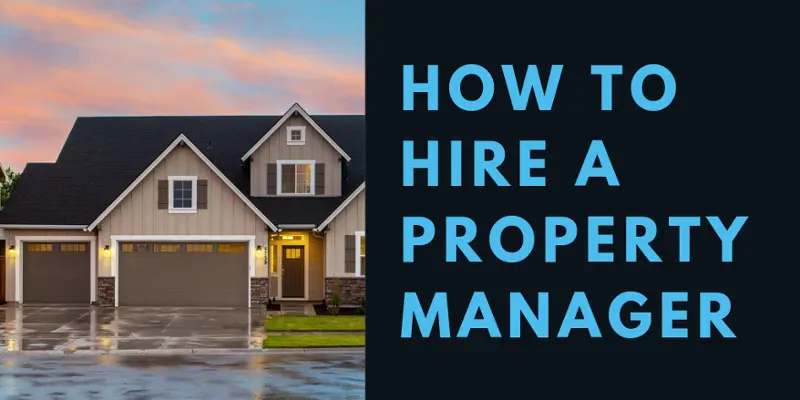Hiring a property manager can be a great thing for your property. It allows you to have more free time and have confidence that your property will be maintained by professionals.
However, sometimes things break down and you end up wondering if your property manager is worth the extra cost. These are the top reasons owners fire their property managers and some tips that can help you prevent it from happening.
Poor Communication
Figuring out how much communication our owners want is our top priority at Good Life. Some owners want to be notified of any changes, maintenance requests, or minor tenant issues. Others only want to be bothered if the house is burning down.
Either way, it is absolutely crucial to communicate with your property manager and vice versa. This is even more important when work is being done on the property or there are complaints about the tenant. You want to feel like you know what’s going on in your home and when the property manager fails to keep you informed, problems tend to arise.
Communication isn’t only important when there are issues. You should be informed when your property goes on market and is leased to new tenants. These small notifications can keep your mind at ease.
We have found that when owners feel that communication is lacking, they will find another manager that can do it better or they will return to managing themselves. It’s important to outline how much communication you want from your property manager at the start of management. This sets the expectation for them and yourself.
Maintenance
Ask any owner or property manager–both parties have been fired over a maintenance issue before. Maintenance on your property is one of the bigger expenses, hence why many owners want to be informed on maintenance problems at the property.
 Some property managers have what we call a “maintenance threshold.” This is when you give permission to the property manager to complete needed repairs without asking you beforehand, so long as it does not exceed X dollars. This amount is usually set across all of their clients, so you’ll have to decide if this is something you are okay with before you commit to hiring them.
Some property managers have what we call a “maintenance threshold.” This is when you give permission to the property manager to complete needed repairs without asking you beforehand, so long as it does not exceed X dollars. This amount is usually set across all of their clients, so you’ll have to decide if this is something you are okay with before you commit to hiring them.
Problems arise when the property manager and the owner do not agree on what is needed for the property. Pushback on necessary repairs can lead to the property manager firing the owner or the owner firing the property manager. This can also tie in with the communication issue. If the property manager doesn’t do a good job of explaining why the repair is needed and why it costs what it does, the owner won’t understand the importance.
The easiest way to combat this is to be up front from the start of management. Lay out your expectations for the property manager and ask how much repairs cost on average and how much they might cost for your home. Clearing the air about this at the beginning will save both you, the owner, many headaches and the property manager as well.
This is why we tell our owners that maintenance and turnovers (preparing the property for new tenants) will usually cost the most. It’s best to be proactive and set aside funds for expected maintenance and emergencies.
Long Vacancies
Vacancies are a tricky subject because it has to do with home value. Long vacancies occur because the home is priced too high for the season, market, neighborhood, or features in the home. However, being told that your home is priced too high can be difficult to accept. After all, this is your home! You put work into what it looks like and how it functions.
When your property manager suggests lowering your asking price, try to keep in mind that it isn’t personal. They want to get your home rented just as much as you do. They are recommending a lower rent because a long vacancy will cost you more in the long run than lowering your rent by $50-$100.
Expenses
Property management costs money. You’re paying your property manager a fee each month to take care of your property. On top of that, there are other fees you might be paying–leasing fees, turnover fees, repair fees, etc. This is a big adjustment if you are not prepared.
 When we first take on a new property, we send one of our leasing managers out to assess the home condition and decide what repairs and minor fixes the home needs to make the home rent-ready. This can often cost anywhere from a couple hundred dollars to a couple thousand. Many owners are not prepared for this number and disagree with some of the items and costs.
When we first take on a new property, we send one of our leasing managers out to assess the home condition and decide what repairs and minor fixes the home needs to make the home rent-ready. This can often cost anywhere from a couple hundred dollars to a couple thousand. Many owners are not prepared for this number and disagree with some of the items and costs.
The property manager’s goal is to get your home rented quickly for the best price that will attract the best tenants. The recommendations made during a make ready/turnover might be more expensive than you had thought, but they will make a big difference when it comes to getting the home rented. If you don’t want to spend money on these types of repairs and replacements, it can cause friction between you and the property manager.
Looking for more tips on how to hire the best property manager for you? Download our guide!
If you found this article helpful, follow us on social media. We post daily tips to help you manage your own rental property:
Steve Welty
Subscribe to our Weekly Newsletter
Join the 5k+ homeowners receiving Local Law Updates and Landlord Tips. Delivered to your inbox every Saturday at 6am PST.
Share this:
Get in touch with us:
We make owning rental property easy.
Choose Your Next Step
Good Life Blogs
We believe that education is empowering.

SB 52: California May Ban AI Rent Pricing Tools
California’s SB 52 could ban landlords from using AI to set rent prices. Learn how this bill may impact your rental business and what actions you can take.

Trash Collection Fees Coming to San Diego Rental Properties
Trash collection fees are coming to San Diego landlords. Learn who’s affected, how much it will cost, and how to stay compliant.

How to Turn Vacant Rental Properties into Tax Deductions
Learn how to turn your rental property’s vacancy into potential tax deductions. Discover the rules, strategies, and tips landlords need to know.








